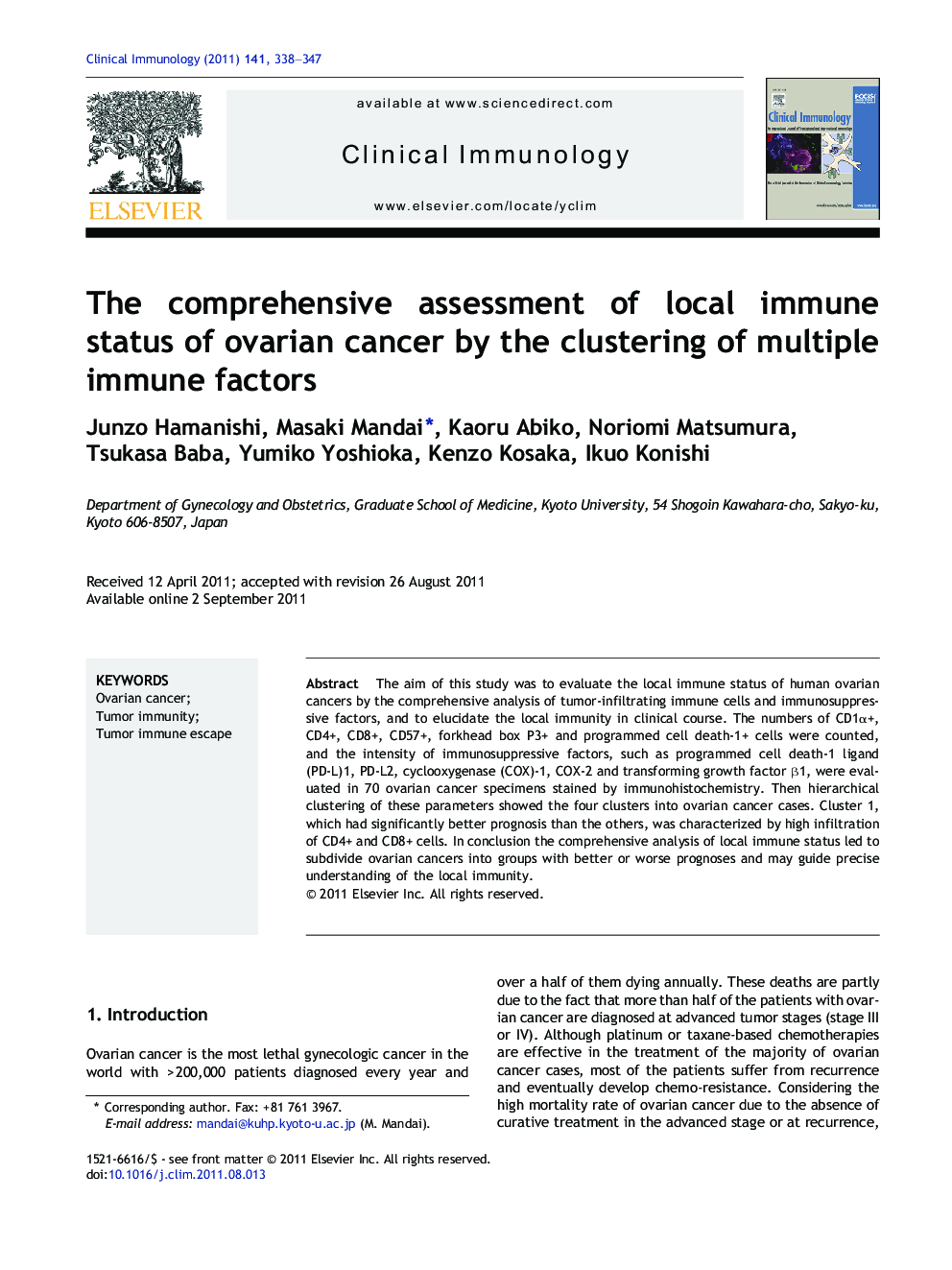| Article ID | Journal | Published Year | Pages | File Type |
|---|---|---|---|---|
| 3257200 | Clinical Immunology | 2011 | 10 Pages |
The aim of this study was to evaluate the local immune status of human ovarian cancers by the comprehensive analysis of tumor-infiltrating immune cells and immunosuppressive factors, and to elucidate the local immunity in clinical course. The numbers of CD1α+, CD4+, CD8+, CD57+, forkhead box P3+ and programmed cell death-1+ cells were counted, and the intensity of immunosuppressive factors, such as programmed cell death-1 ligand (PD-L)1, PD-L2, cyclooxygenase (COX)-1, COX-2 and transforming growth factor β1, were evaluated in 70 ovarian cancer specimens stained by immunohistochemistry. Then hierarchical clustering of these parameters showed the four clusters into ovarian cancer cases. Cluster 1, which had significantly better prognosis than the others, was characterized by high infiltration of CD4+ and CD8+ cells. In conclusion the comprehensive analysis of local immune status led to subdivide ovarian cancers into groups with better or worse prognoses and may guide precise understanding of the local immunity.
► We found novel approach to explore local cancer immunity by hierarchical clustering. ► Clustering by scoring immune cells and immune suppressive factors made 4 groups. ► Immune cell infiltration and low immunosuppressors were related to good prognosis. ► This study leads to a precise understanding of the local immune status of cancer. ► We provide a salient tool for the application of immune therapies in ovarian cancer.
